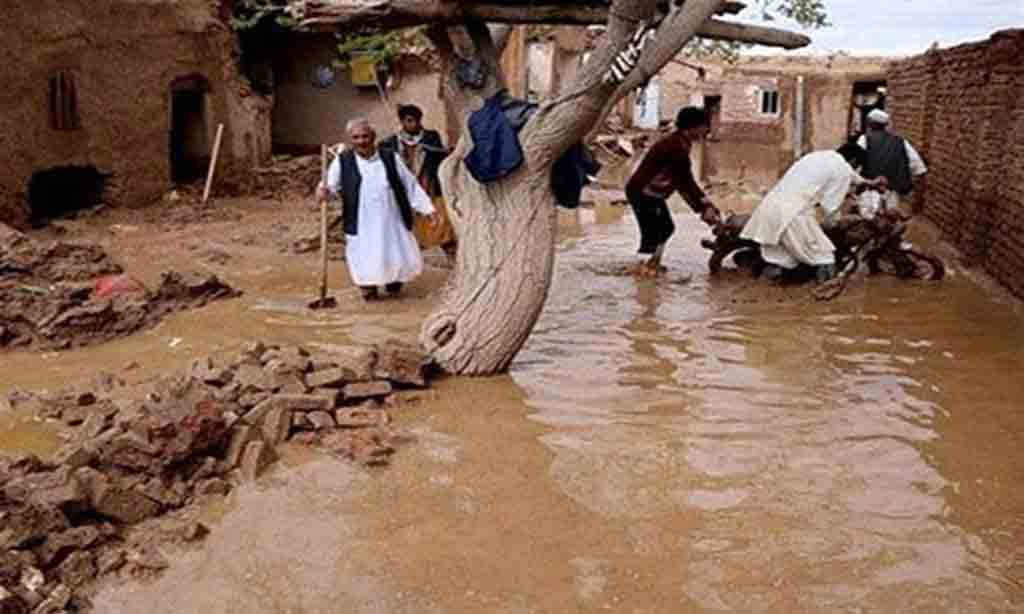Taliban at COP29: Afghanistan among the countries most vulnerable to climate change
Matuil Haq Khalis, head of Afghanistan’s environmental protection agency, called on the international community for support; for the past three years, the Taliban regime has been excluded from international fora. The intensity of floods, combined with periods of prolonged drought, is displacing more people internally, while agriculture is yielding less and less. Projects by UN agencies cover only one province in three.
Baku (AsiaNews/Agencies) – For the first time since the Taliban returned to power in 2021, an Afghan delegation will participate (as an observer) at COP29, the United Nations climate talks that opened yesterday in Baku, Azerbaijan.
Matuil Haq Khalis, head of the country’s environmental protection agency, said the country needed international support to cope with extreme weather events.
Responding to a question about women being more vulnerable to climate change than men (a fact confirmed by UN assessments), Khalis said that “climate change impact doesn’t have any boundaries, it can have its impact on women, children, men, plants or animals, so it requires collective work to tackle this issue.”
For some experts, the Taliban must participate in the climate conference as well. “By virtue of being a global forum, there are a whole host of politically unsavoury states with all kinds of appalling records of one sort or another that attend. Where would we draw the line?” noted Joanna Depledge, a climate historian at the University of Cambridge in the UK.
Afghanistan is the sixth most vulnerable country in the world to climate change. Among low-income countries, it ranks second in the number of deaths caused by natural disasters between 1980 and 2015.
In the last 40 years, rainfall has been 25 per cent more intense and in March of this year alone, at least 300 people died due to flash floods. In April, at least 70 people died and about 2,000 homes were destroyed. At the same time, 25 provinces out of 34 suffer from severe drought.
This seems counter-intuitive, but since intervals between rainfall are getting longer, when it does rain, natural calamities are more intense due to greater soil aridity.
According to a recent study by Save the children, in the first six months of 2024 alone, extreme weather events forced at least 38,000 people to flee their homes, about half of them children, far more than for the whole of last year, 37,076.
At the end of last year, Afghanistan also reported the highest number of children left homeless in the world from environmental disasters: 747,094.
Since 2022, extreme weather events are the first cause of displacement after decades in which war was the main factor in displacing Afghans.
This is the third consecutive year of permanent drought conditions in a country where 80 per cent of the population depends on agriculture.
Today, more than one in three people experience severe food insecure due to high prices, which are in turn caused by climate shocks.
But that's not all. Some studies show that plant yields in Afghanistan have halved due to toxins released by explosive devices. According to experts, the presence of anti-personnel mines and demining activities have had an impact on soil erosion, causing greater damage when earthquakes and floods occur.
Decades of war and rampant poverty have made Afghanistan one of the countries least able to cope with climate change.
Before the Taliban came back to power, the United Nations estimated that the country needed US$ 20.6 billion to finance climate adaptation initiatives (and emission reductions by 2030, although the country emits very little compared to industrialised countries).
The exclusion of the Taliban from the global stage since 2021 has been accompanied by funding cuts for climate resilience.
Some UN and EU agencies, together with NGOs that have a historical presence in the country, are still implementing a series of projects, trying to prevent funds from ending up directly in the Taliban's accounts.
As some researchers stressed, these programmes cover only a third of the country's provinces, leaving a large part of the Afghan population out in the cold.
04/11/2021 09:58
30/10/2021 12:20







.png)










